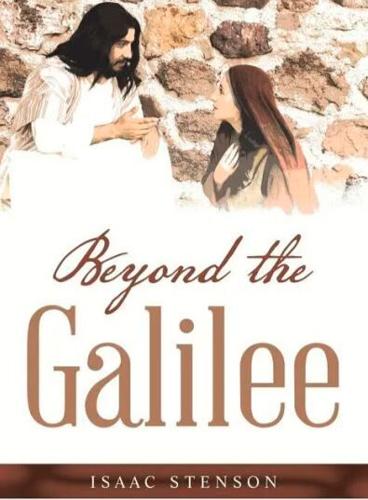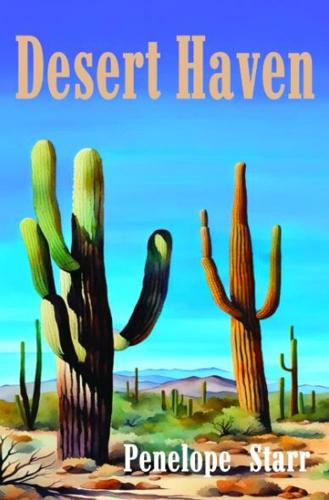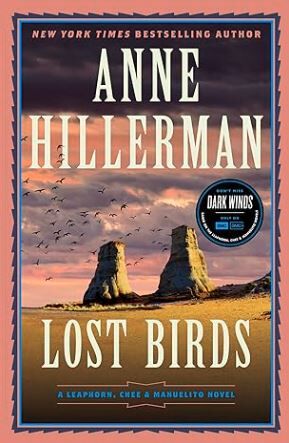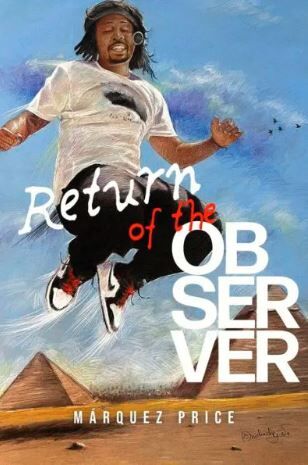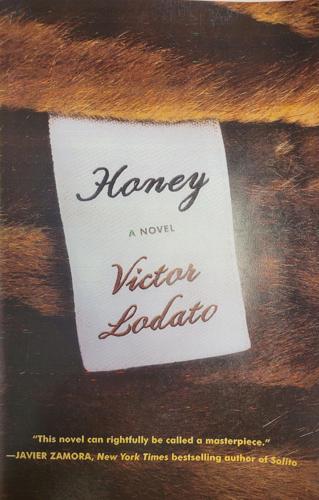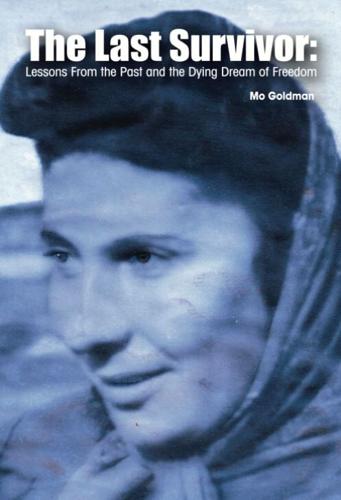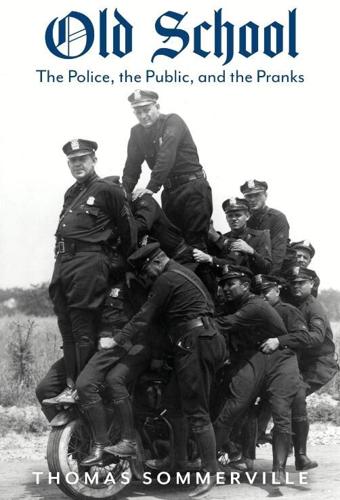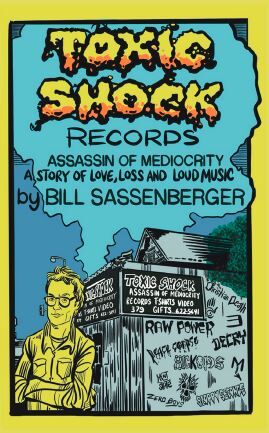“Beyond the Galilee” by Isaac Stenson. Trafford Publishing.110 pages. $13.99 paperback; available as an e-book.
Writer Isaac Stenson was born Estacion Vega in Mexico, descendant of a Russian immigrant. In this romance between Jewish Elisheva from the Bronx and Santiago, a Tucson Crypto Jew, he highlights the value of varied expressions of spirituality.
Elisheva has flown into Tucson to collect copies of an ancient Sefer scroll and a Catholic codex. The original scroll is a hand-written copy of the Torah; the codex, possibly 2,000 years old, avers that Jesus of Nazareth married Mary Magdalene, and they had children together. Intrigued by both documents, and exploring their own faith traditions, Santiago and Elisheva travel together to Turkey, Lithuania and Israel.
Stenson is to be commended for his examination of varied faith expressions in this accessible novel. Would that his copy editor had been more attentive to grammatical expression in it….
— Christine Wald- Hopkins
“Desert Haven” by Penelope Starr. Rattling Good Yarns. 221 pages. $18.95 paperback; $9.99 e-book.
One woman is stung and briefly paralyzed by a tarantula hawk, derailing her companion’s seduction plans. Another, the only straight woman in a rural, man-eschewing community, sneaks into town once weekly for quickies with random men. A third, accepting a ride on a lark to Rocky Point, finds herself unwittingly holed up with a woman she met in a bar, squatting in a luxury condo. These are three of the escapades of the 15 characters in this short story collection by Tucsonan Penelope Starr.
“Desert Haven” fictionally chronicles a phenomenon that grew out of feminism in the 1960s. The back-to-the-land movement — women-only communities that believed that throwing off patriarchy and societal strictures would allow women independence and autonomy. This community sits in the desert outside Tucson.
As with any utopian experiment, ideals morph and change as realities, participants, and time impinge on them. Starr successfully represents that by organizing the stories chronologically from 1977 to 2015.
Onto one woman’s acreage, women are invited to find a spot and settle in — in tents, cars, vans or trailers; even to dug-out rooms. If they can’t pay the $4-a-night minimum, they can stay anyway. They have nightly potlucks and goddess-invoking celebrations together, and often migrate to other communities, informed by a loose lesbian underground.
In these intertwined stories, relationships are made and lost, characters come and go; the dynamics of the experiment reveal fissures in ground rules: are young boys allowed? How about trans women? What should happen to the land after the owner’s death?
Blurbed as appealing to readers who might have lived on women’s land, or considered it, “Desert Haven” is also interesting to readers unfamiliar with lesbian “herstory.”
— Christine Wald-Hopkins
“Lost Birds” by Anne Hillerman. Harper. 285 pages. $30 hardcover; $26 paperback.
There’s something comfortable about settling into a new book-from-a-series: you know the setting, like the characters, wonder what new challenge it’ll pose. That’s the case with “Lost Birds,” Anne Hillerman’s ninth Leaphorn, Chee and Manuelito mystery, in which each character pulls a thread in its braided narrative.
The term “lost birds” refers to Native children adopted out of their culture, former Navajo Lieutenant, now P.I., Joe Leaphorn pulls the title thread: he takes the case of an adoptee who believes she might be Navajo.
For her part, Bernie flouts a new boss’s limitations on her investigation into a school explosion and dead woman, and Sergeant Jim Chee does what he does best — keeps an eye on both tribal police work and Bernie and her family.
From Leaphorn’s opening explosion-interrupting phone call, through sheep-killing wild rez dogs, Leaphorn’s housemate Louisa’s disturbed son, to an unexpected perpetrator emerging in the final climactic scene, Santa Fe and Tucson resident Hillerman keeps the action engaging and moving.
— Christine Wald-Hopkins
“Return of the Observer” by Marquez Price. Independently published. 102 pages. $9.99 paperback.
The life Marquez Price leads is as intentional, disciplined and mindful as most (including this reader) could only aspire to.
Tucson-reared Price, whose previous two publications were poetry collections, here turns to essays, observations on ways to live purposeful, fulfilling lives.
Situating the writing in the context of living alone during the COVID pandemic, Price relates that he took the pandemic as an “opportunity to reset aspects” of his life — diet, exercise, social media, financial, work/study, spiritual. In essence, much of Price’s “reset” entails re-evaluating the aspect and paring it down to essentials — including pizza-free weekdays, a “digital diet,” minimizing and de-cluttering his life; facing fears; practicing empathy.
This is a collection full of wisdom … some of which Price affectingly attributes to his father, Tucson athlete and educator Delano Price: “My father once told me being a Black man is demanding,” writes Marquez. “Part of my wealth has been to have a father like mine.”
Amen.
— Christine Wald-Hopkins
“Honey: A Novel” by Victor Lodato. Harper. 400 pages. $25.60, $14.99 Kindle.
With “Honey,” PEN USA Award-winning author Victor Lodato introduces an irresistible heroine, luminous, defiant and unforgettable in her complexity.
As a teenager, Honey Fasinga rejected her mob boss father and New Jersey home, fleeing to Bryn Mawr to study art. Shutting the door firmly against her toxic family life, she ignored her father’s dark prediction that she’d return someday.
But he wasn’t wrong. We find Honey, now retired from a successful career at high-end auction houses in New York and Los Angeles, back in her old hometown. She looks good for her age. Glamorous and effortlessly chic, she can pass for a woman in her 60s. But there are days she feels every one of her 82 years. The knowledge that she has unfinished business haunts her.
Her demons were not buried during her absence — if anything they’ve multiplied, daring her to challenge them. But to what end? Is forgiveness called for? Or revenge? Is compassion possible in a merciless world? Having long ago traded violence for beauty and art, what Honey loves most about painting is the way it can “make peace between what seem to be irreconcilable ideas.” It’s a reflection that speaks to the heart of this propulsively readable novel.
Lodato’s keen eye for detail complements an exuberant narrative that moves with energy, creating the portrait of a woman who repudiates victimhood. Old age, despite its indignities, presents an opportunity to wield power, if she’ll take it.
A Guggenheim Fellow, Lodato is the author of two acclaimed novels, “Edgar and Lucy” and “Mathilda Savitch.” He divides his time between Ashland, Oregon, and Tucson.
— Helene Woodhams
“The Last Survivor: Lessons From the Past and the Dying Dream of Freedom” by Mo Goldman. Independently published. 137 pages. $14.99, Kindle $4.99.
Mo Goldman describes his Holocaust survivor grandmother’s journey to freedom in the United States, employing her harrowing experience as a measure by which to assess the current condition of U.S. immigration law.
Esther Praw’s family was exterminated by the Nazis; she barely survived the death camps, carrying the physical and psychological scars the rest of her life. But, notes Goldman, in the end, she arrived in a safe haven where she and her children could thrive.
Have we learned anything from the past? For Goldman, an immigration attorney, the answer is a resounding “no.” For people who, like Esther, are fleeing poverty and violence for a better life, the U.S. immigration system is a dysfunctional “web of draconian laws” producing a process that is “…a bureaucratic, xenophobic, man-made disaster.”
Citing conflicting laws and legislated barriers to opportunity, Goldman recounts the nation’s historically fraught relationship with immigration and debunks myths about immigrants’ burden on society. Most alarming to him is the increasing acceptance of Nazism, white supremacy and Holocaust denialism, fueled by a former president whipping up frenzied conspiracy theories and fear. Have we lost our moral compass? Goldman’s assessment makes this well-documented book a compelling read. He is a partner at Goldman Immigration, PC, a Tucson-based law firm.
— Helene Woodhams
“Old School: The Police, the Public, and the Pranks” by Thomas Sommerville. Wheatmark. 376 pages. $18.99, $9.99 Kindle.
Losing the tip of his trigger finger to a pipe shearing blade, the author feared his dream of joining the police force was over. From his elementary school days, Thomas Sommerville had been driven by “the excitement and chance to help people.”
Luckily, his shortened finger was not a deal breaker. Sommerville graduated from the Detroit Police Academy in 1974 and joined the force as an “old school” street patrol officer. Thirty years later the highly-decorated officer retired and headed southwest to join the Marana Police Force.
Presented in the form of bite-sized reminiscences, his memoir offers a revealing look behind the scenes of the police force, including the hijinks that helped alleviate the high-stress nature of the job. It’s an eye-opening read about a world civilians know little about.
— Helene Woodhams
“Toxic Shock Records Assassin of Mediocrity: A Story of Love, Loss and Loud Music” by Bill Sassenberger. Fluke Publishing. 204 pages. $19.95.
Toxic Ranch Records was the destination for Tucson’s underground music scene for more than two decades, before it closed in 2013. For Bill Sassenberger and his business partner/spouse Julianna Towns, it was the brick-and-mortar outlet for their independent record label and mail order business, and the epicenter for the punk rock, alternative and indie musicians they nurtured.
Sassenberger chronicles the long, strange trip through the decades and around the country that brought him to Tucson in this richly-detailed book. Part autobiography and part history of Toxic Shock, his contemplation on the record label that eschewed mainstream music delights with its references to the popular culture that shaped it.
It’s clear that Julianna, who passed in 2019, is never far from his thoughts. She shared Sassenberger’s enthusiasm for championing independent artists and was an accomplished musician and performer until suffering a major stroke in 2011. The poignant story of their path forward together through her convalescence, woven into each chapter, underscores that this book is, above all things, Bill and Julianna’s story.
Oral histories, rare, archival photos, and Toxic Shock’s discography round out this uniquely personal, bird’s eye-view of a musical revolution.
— Helene Woodhams
A unique book club at one of the nation's largest jails brings together college students and inmates. Their recent meeting at Cook County Jail was to discuss “Dead Man Walking,” a book writing by anti-death penalty activist Sister Helen Prejean. #bookclub
Subscribe: http://smarturl.it/AssociatedPress
Read more: https://apnews.com
This video may be available for archive licensing via https://newsroom.ap.org/home


